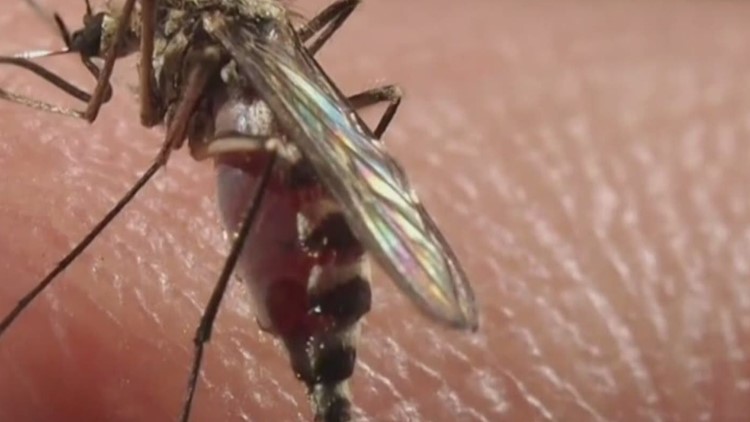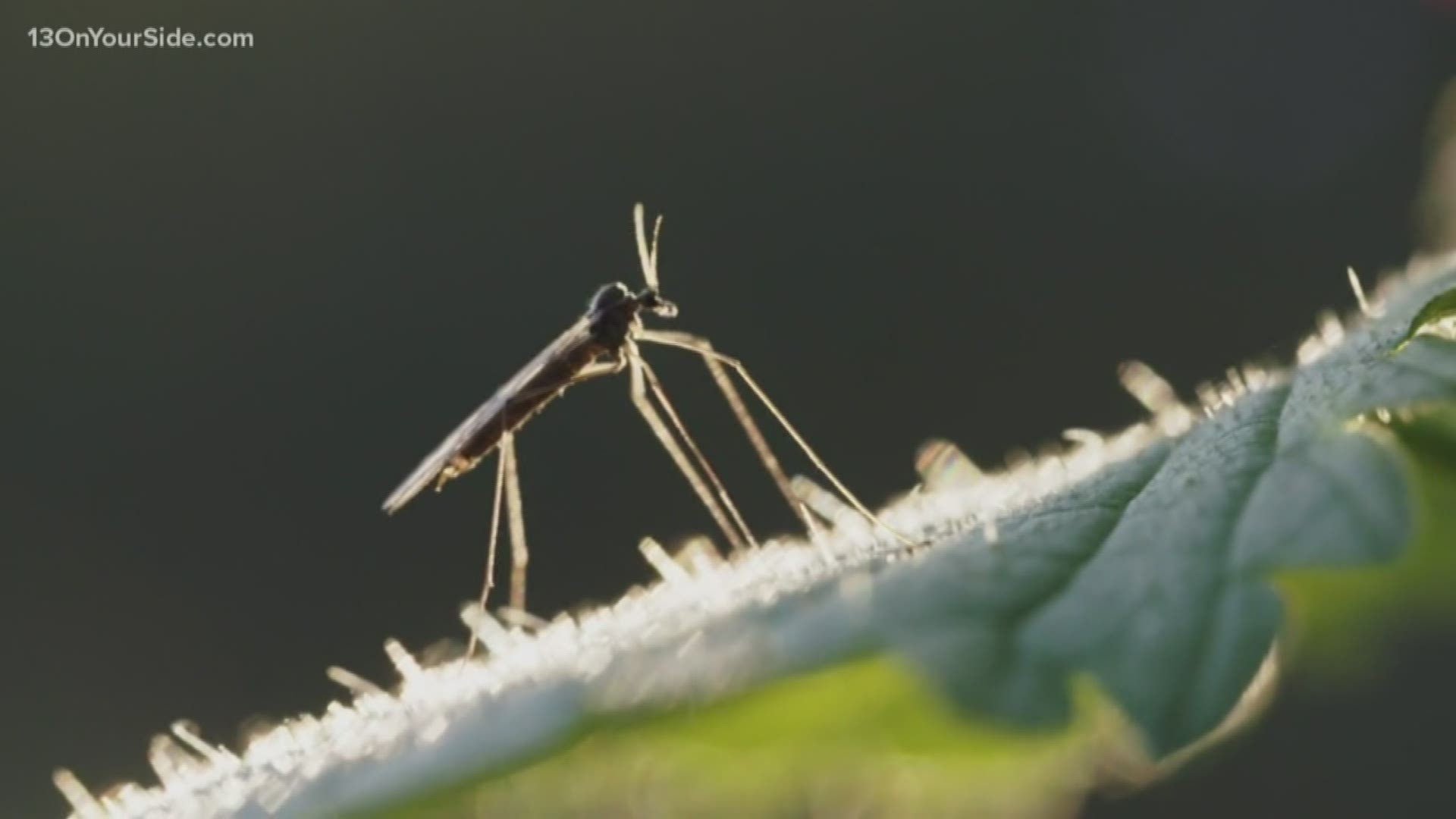MONTCALM COUNTY, Mich. — The Michigan Department of Agriculture and Rural Development (MDARD) confirmed the second case of Eastern Equine Encephalitis (EEE) for 2020 in a 12-year-old mare from Montcalm County.
According to MDARD, EEE is a viral disease, transmitted by mosquitoes to both animals and people. EEE is one of the most dangerous mosquito-borne diseases in the U.S., and the virus is typically seen in late summer to early fall each year in Michigan.
While horses are highly affected by the disease, people can also be infected with EEE from the bite of a mosquito carrying the virus. In humans, signs of EEE include the sudden onset of fever, chills, and body and joint aches. EEE infection can develop into severe encephalitis, resulting in headache, disorientation, tremors, seizures, and paralysis. Permanent brain damage, coma, and death may also occur in some cases.
“This second confirmed case of EEE in a horse reminds Michiganders of the strong need to take precautions to protect themselves from mosquito bites,” said Dr. Joneigh Khaldun, chief medical executive and chief deputy director for health for the Michigan Department of Health and Human Services. “It only takes one bite from a mosquito to transmit the virus, which can lead to severe neurological illness, permanent disability, and sometimes death.”
MDARD recommends the following to protect horses and other domestic animals such as dogs, sheep and goats from the virus.
- Talking to a veterinarian about vaccinating horses against EEE.
- Placing livestock in a barn under fans (as mosquitos are not strong flyers) during peak mosquito activity from dusk to dawn.
- Using an insect repellant on an animal that is approved for the species.
- Eliminating standing water on the property—i.e., fill in puddles, repair eaves, and change the water in buckets and bowls at least once a day.
- Contacting a veterinarian if an animal shows signs of the illness: fever and stumbling, which can progress to being down and struggling to stand.
To protect yourself and your family MDARD listed these recommendations:
- Apply insect repellents that contain the active ingredient DEET, or other U.S. Environmental Protection Agency-approved products, to exposed skin or clothing and always follow the manufacturer’s directions for use.
- Wear long-sleeved shirts and long pants when outdoors. Apply insect repellent to clothing to help prevent bites.
- Maintain window and door screening to help keep mosquitoes outside.
- Empty water from mosquito breeding sites around the home, such as buckets, unused children’s pools, old tires, or similar sites where mosquitoes may lay eggs.
- Use nets and/or fans over outdoor eating areas.
For more information about mosquito-borne diseases, visit Michigan.gov/emergingdiseases.
►Make it easy to keep up to date with more stories like this. Download the 13 ON YOUR SIDE app now.
Have a news tip? Email news@13onyourside.com, visit our Facebook page or Twitter. Subscribe to our YouTube channel.




